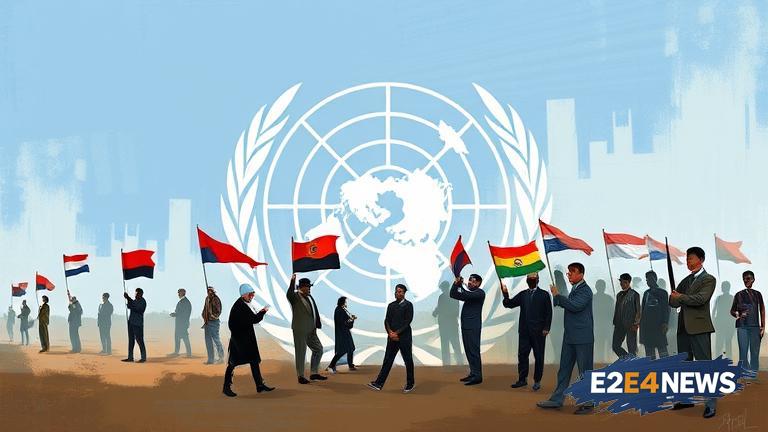The Rohingya genocide, which occurred in 2017, resulted in the displacement of hundreds of thousands of people and the deaths of thousands more. The international community has widely condemned the atrocities committed by the Myanmar military, and UN member states are now working together to pursue accountability for those responsible. The United Nations has played a crucial role in documenting the human rights abuses and atrocities committed during the genocide, and has called for those responsible to be held accountable. The International Court of Justice has also become involved, with The Gambia filing a lawsuit against Myanmar for violating the Genocide Convention. Other countries, including Canada and the Netherlands, have also joined the lawsuit, demonstrating the international community’s commitment to holding Myanmar accountable. The Rohingya people have faced decades of persecution and discrimination in Myanmar, and the 2017 genocide was the culmination of years of violence and human rights abuses. The international community has a responsibility to protect the Rohingya people and to ensure that those responsible for the genocide are held accountable. The pursuit of accountability is not only important for the Rohingya people, but also for the international community as a whole, as it sends a message that such atrocities will not be tolerated. The UN member states are working together to gather evidence and to build a case against those responsible for the genocide. This includes collecting testimony from survivors and gathering documentation of the atrocities committed. The international community is also working to provide support and assistance to the Rohingya people, including providing humanitarian aid and supporting efforts to rebuild their communities. The pursuit of accountability is a complex and challenging process, but it is essential for ensuring that justice is served and that the Rohingya people receive the support and protection they need. The international community must continue to work together to hold Myanmar accountable for the Rohingya genocide and to ensure that such atrocities never happen again. The UN member states are committed to this goal and are working tirelessly to pursue accountability and to support the Rohingya people. The Rohingya genocide is a stark reminder of the importance of protecting human rights and preventing such atrocities from occurring in the future. The international community must learn from this tragedy and work to prevent similar atrocities from happening again. The pursuit of accountability is an important step in this process, and the UN member states are playing a crucial role in this effort. The Rohingya people deserve justice and accountability, and the international community must work to ensure that they receive it. The UN member states are united in their commitment to pursuing accountability for the Rohingya genocide, and they will continue to work together to achieve this goal. The international community must also work to address the root causes of the genocide, including the persecution and discrimination faced by the Rohingya people in Myanmar. This includes working to promote tolerance and understanding, and to address the economic and social inequalities that have contributed to the violence. The pursuit of accountability is an important step in this process, but it is only one part of the solution. The international community must also work to support the Rohingya people and to help them rebuild their communities. This includes providing humanitarian aid, supporting education and economic development, and promoting human rights and social justice. The UN member states are committed to this goal and are working to provide support and assistance to the Rohingya people. The Rohingya genocide is a tragic reminder of the importance of protecting human rights and preventing such atrocities from occurring in the future. The international community must learn from this tragedy and work to prevent similar atrocities from happening again. The pursuit of accountability is an important step in this process, and the UN member states are playing a crucial role in this effort.
